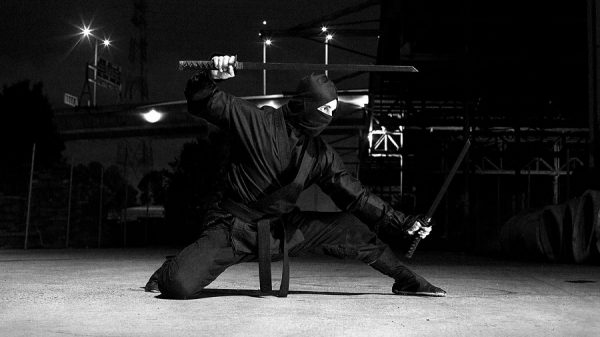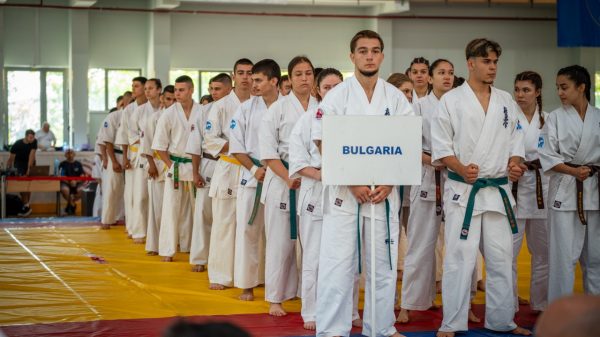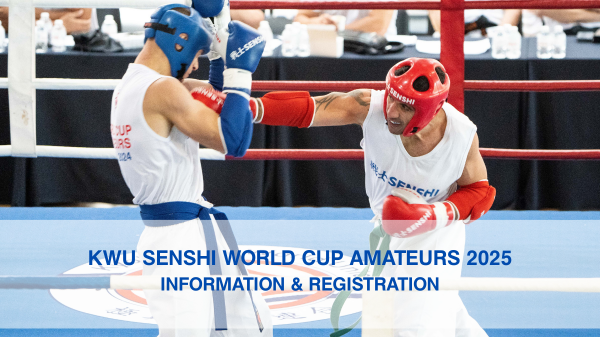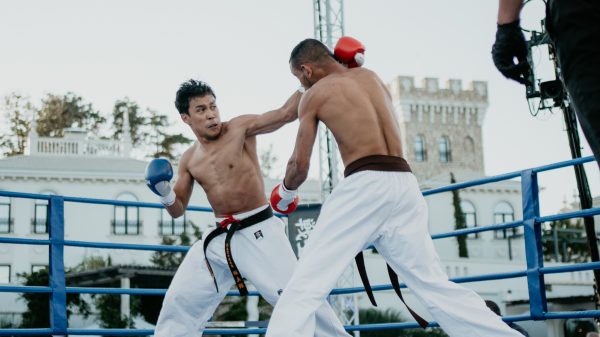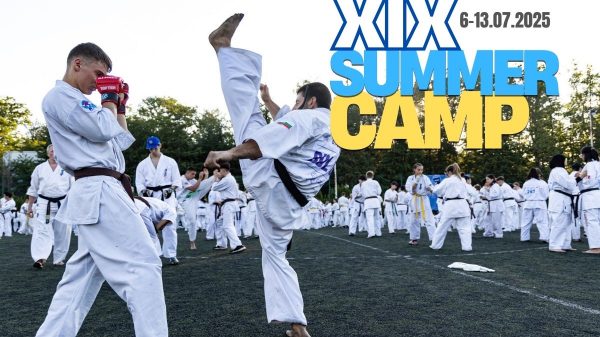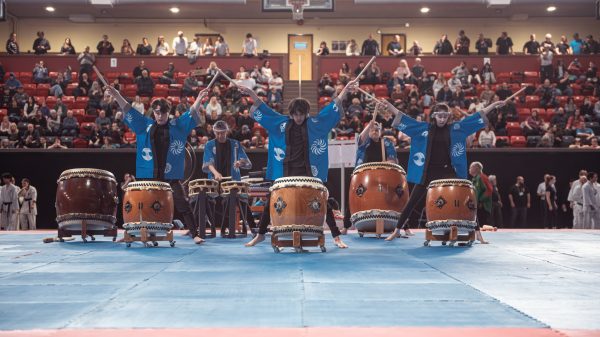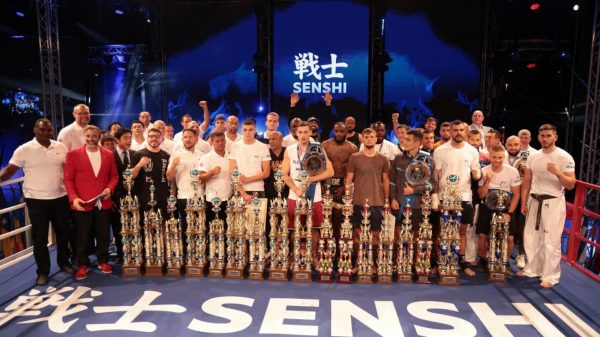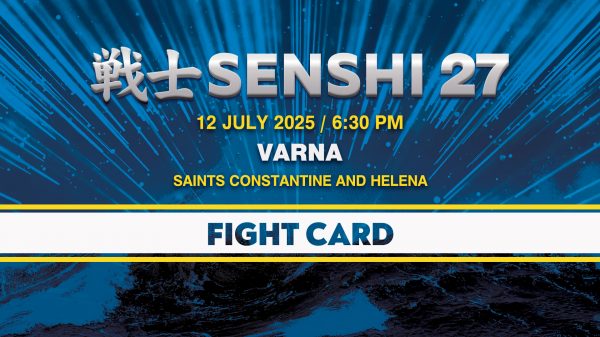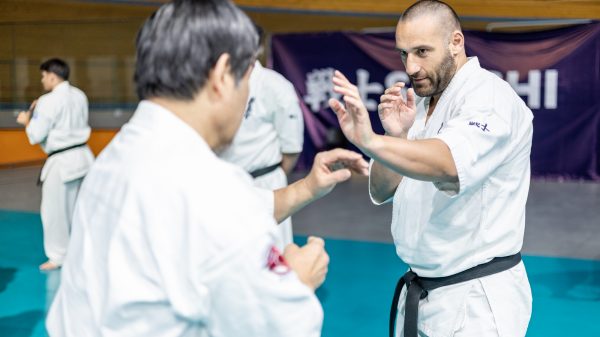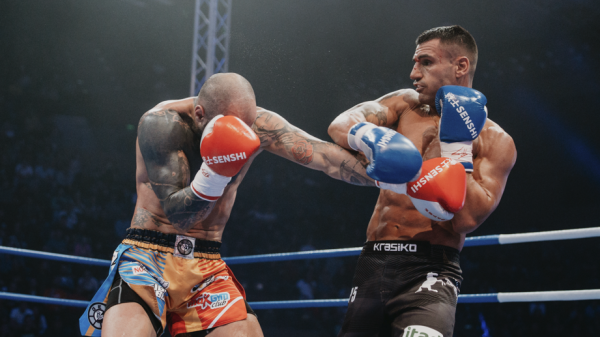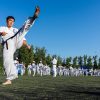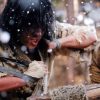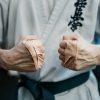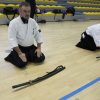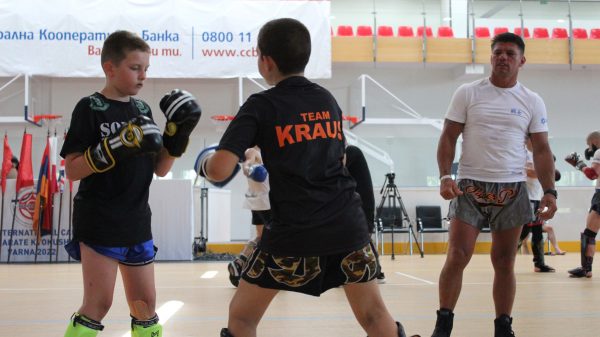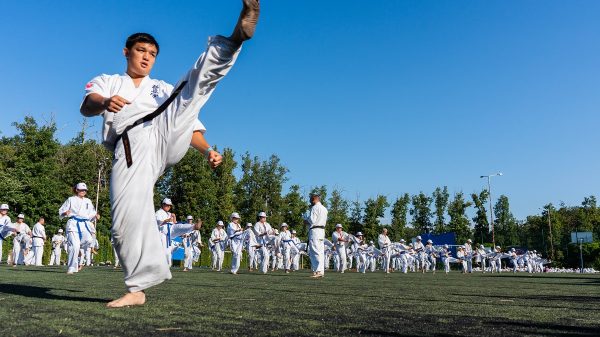Karate Terms No. 1: Kumite
Misunderstood meaning: sparring
Actual meaning: grappling or engagement of hands
Why it matters: Composed of two roots — Kumi (grapple) and te (hand) — kumite refers to the instant a fight actually begins. It’s when you and your partner first make contact. “When you think about it, you’ve got to be standing right in front of each other when you touch. It’s important to understand the real meaning of the word to better understand what happens during oyo bunkai.”
Karate Terms No. 2: Mokuso
Misunderstood meaning: meditation
Actual meaning: reflection and contemplation
Why it matters: Practicing mokuso gives you an opportunity to get in the proper mindset to train: “It’s not meditation in the sense of going off into another world. It’s reflecting on your past training and contemplating the training you’re about to do.”
Karate Terms No. 3: Rei
Misunderstood meaning: bow
Actual meaning: spirit or soul
Why it matters: “For somebody practicing karate for exercise or sport, rei is merely a salutation, these days, people bow by nodding their head and slapping the sides of their legs, but that’s not the proper way to do it.” The bow must come from the abdominal area because that’s where the tan tien (the seat of the soul) is. “If rei is ‘soul,’ obviously the bow has to be done from there,” he adds.
Karate Terms No. 4: Reishiki
Misunderstood meaning: spirit
Correct meaning: manners, etiquette, or correctness
Why it matters: “[It refers to] the correct attitude — why you’re training and always keeping your mind on the path or way.” For example, you’re expected to know and demonstrate proper etiquette in the kohai-sempai (junior-senior) relationship. “Your sempai always precedes you. You open the door and let him go first. Before you take care of yourself, you always make sure he’s taken care of.”
Karate Terms No. 5: Sensei
Misunderstood meaning: teacher
Correct meaning: a guide
Why it matters: Because it’s composed of the roots sen (before) and sei (life), the literal translation of sensei is “before in life,”
“A sensei is somebody who guides another person. For example, if you went climbing a mountain, you’d probably need a guide. Why? Because the guy has climbed that mountain before, and he made it.”
It’s the same thing with karate. The sensei was once at the same stage of training you’re at, and he can show you the way up. If you understand what his role is, you will have a better idea of what you can expect from him and what he can expect from you, he says. “Think of it this way: A sensei is behind you, pushing you forward, not standing in front of you, pulling. Ultimately, it’s your responsibility to progress.”
Source: blackbeltmag.com


